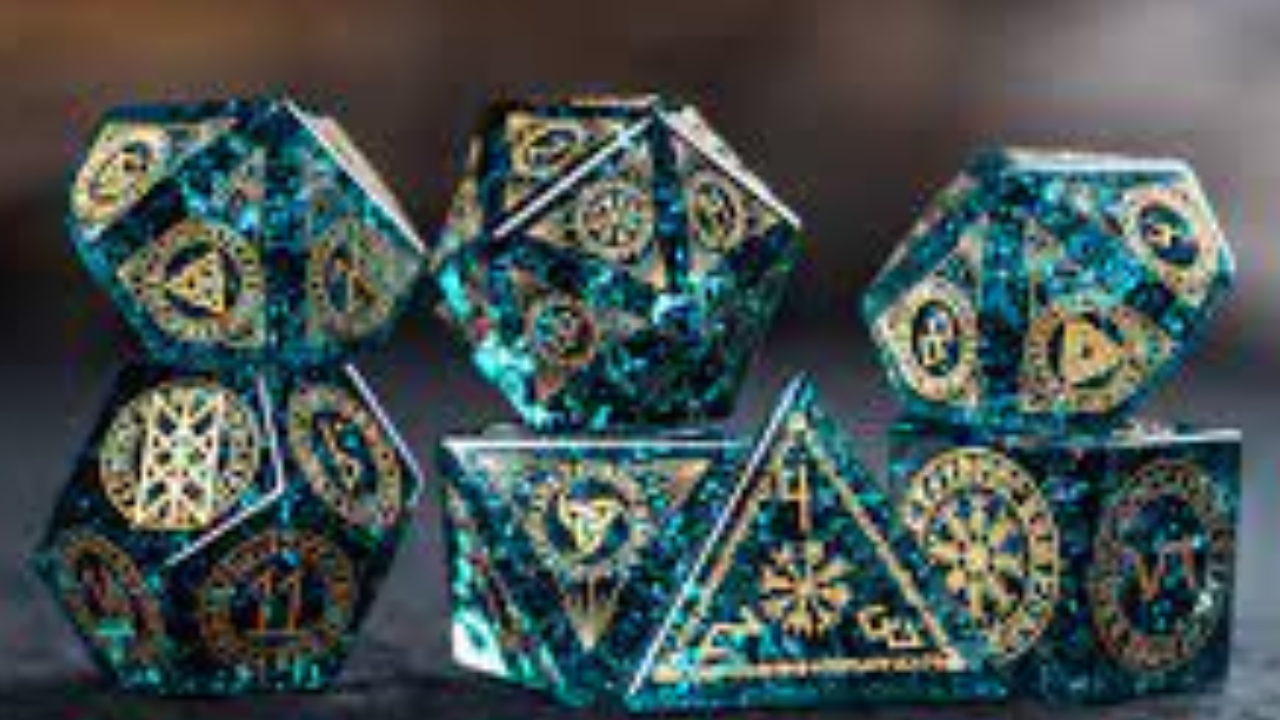Loose will is the key to success roleplaying in a recreation like Dungeons and Dragons. However, you will need to be familiar with a variety of D&D jargon. Nearly the entirety is up to you and is open-ended. The handiest restriction on what you may say and do as your character is your own creativity. You are making the decision to approach the hooded outsider within the pub.
Making a decision to assist her in releasing her brother who is being held captive by using a troll. The selection is in the end yours as to whether you will use your broadsword to fight the troll or hearth arrows to keep away from the troll's mace. But to stay with us visit site, and we'll show you ways to make use of your D&D cube.
Why Do D&D Games Have So Many Dice?
The several types of dice provide a wide range of potential results, giving the game depth and complexity. Various outcomes are determined by rolling different dice, from the harm a weapon swing causes to the success of an attempt to sing a song in a pub or convince the shopkeeper to sweeten a deal.
D&D Dice's Primary Features
We will go into the primary traits of D&D dice in this article and examine how they contribute to the campaign's magical tapestry.
Polyhedral Accuracy
The polyhedral structure of D&D cube is their maximum distinguishing characteristic. Each of the wonderful geometric shapes of these dice represents a one-of-a-kind range of facets. The dice with 4 faces (D4), six faces (D6), 8 faces (D8), ten faces (D10), twelve faces (D12), and twenty faces (D20) are the maximum broadly used. The range of numbers the cube can produce is decided with the aid of their shapes, which serve greater than just aesthetic functions. So one can produce a larger variety of outcomes, the D100, frequently known as the percentile die, is regularly used alongside a D10.
The Powerful D20
The D20 is the most prominent of these dice in the majority of D&D games. It is used as the main die to decide if an action is successful or unsuccessful. On a D20, rolling a natural 20 denotes a critical success, releasing incredible feats, whereas rolling a natural 1 typically indicates a critical mass, frequently resulting in bad luck or unforeseen repercussions. So the D20 represents the intrigue of D&D's unpredictable nature.
Function of Modifiers
D&D dice throws are not complete without modifiers. They stand in for a character's inherent talents, acquired skills, and outside variables that may have an impact. The outcome is calculated by adding these modifications to the dice roll. A character with a +3 bonus to a D20 roll, for instance, can significantly improve an average roll. Each character's experience is dynamic and unique because of the way the dice and modifiers interact.
Critical Success and Failure
In D&D, pivotal successes and failures serve as turning points. On a D20, a natural 20 is a vital hit and typically results in outstanding success, whereas a natural 1 is a major miss and frequently results in unforeseen difficulties or comedic catastrophes. As a result, fascinating stories are created and players are kept interested as they wait for the next roll of the dice. These extremes heighten the drama and unpredictable nature of the game.
The D100 and Specialty Dice
While the basic dice are the D4, D6, D8, D10, D12, and D20, certain D&D variations and settings also include specialty dice like the D16 or D24. Since these dice are only utilized in certain circumstances, the game gains complexity and variation. The D100 acts as a percentile die, useful for generating random tables, calculating percentages, and handling a variety of other situations. It is commonly rolled with two D10s.
Decorative and Collectible Appeal
D&D dice are prized mementos for many players and are more than simply useful gaming equipment. Players can select dice that go well with their characters or preferences thanks to the wide variety of colors and themes available in dice sets. The sound of the dice clanging on the table and the physical feel of rolling them provide the game a sensory layer that improves immersion and emotional connection to the characters and plot.
Conclusion
The well-known tabletop role-playing game Dungeons & Dragons (D&D) has won the hearts of millions of gamers all over the world. D&D dice are the heart of the game's unpredictability and storytelling potential; they are more than just random number generators. They are the foundation of D&D's enduring magic, providing polyhedral accuracy, critical hits, and aesthetic appeal.

